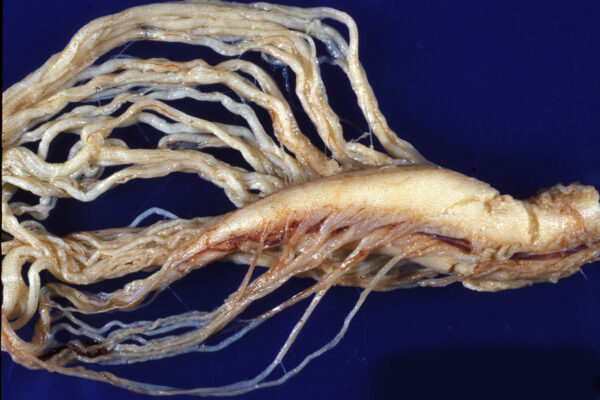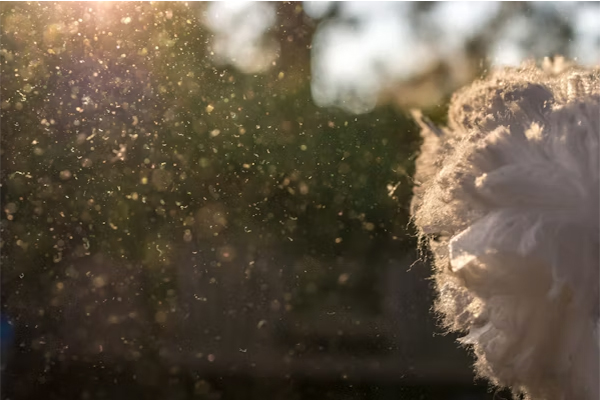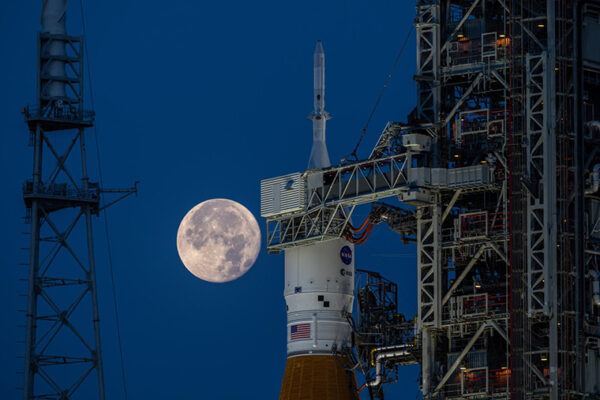Atlas with annotated neuropathology images launched
Robert Schmidt, MD, PhD, a professor of pathology and immunology at Washington University School of Medicine in St. Louis, has curated a collection of over 33,000 individually annotated neuropathology images that are now available as a resource to the Washington University and international neuroscience community via a newly launched website.
Role of dust on indoor environmental air quality gets closer look
Jenna Ditto, an assistant professor of energy, environmental and chemical engineering in the McKelvey School of Engineering at Washington University, is taking a closer look at the chemistry of indoor dust with a three-year $453,000 grant from the National Science Foundation.
Mahmoud honored by American Heart Association
Zainab Mahmoud, MD, an instructor in medicine at Washington University School of Medicine in St. Louis, has been awarded the Dr. Nanette K. Wenger Research Goes Red Award from the American Heart Association.
Novel material supercharges innovation in electrostatic energy storage
Sang-Hoon Bae, a researcher at Washington University, has developed artificial heterostructures made of freestanding 2D and 3D membranes that have an energy density up to 19 times higher than commercially available capacitors.
Global study reveals health impacts of airborne trace elements
Researchers at Washington University , led by Randall Martin, investigated global particulate matter, revealing health risks from trace elements.
Study highlights importance of caregiver well-being in Uganda
A group-based curriculum called Journey of Life — delivered over 12 sessions in the Kiryandongo refugee settlement in Uganda — led to improvements in mental health, social support, parental warmth and attitudes around violence against children, finds a new study from the Brown School.
WashU to manage data for instrument on Artemis moon mission
Washington University in St. Louis will manage data processing and dissemination for the Lunar Environment Monitoring Station, one of the first three potential payloads selected for Artemis III, NASA’s mission which will return astronauts to the moon for the first time in more than 50 years.
Masteller wins NSF CAREER award
Geoscientist Claire Masteller in Arts & Sciences will look at the erosive power of ocean waves on rocky coastlines with a CAREER award from the National Science Foundation.
Buder Center grant to bolster training, support
The Kathryn M. Buder Center for American Indian Studies at the Brown School will co-lead an $880,840 three-year grant project from the U.S. Department of Justice to bolster training and support systems for Native American communities.
Ding receives Michelson Prize for advancing human immunology
Siyuan Ding, an assistant professor of molecular microbiology at Washington University School of Medicine in St. Louis, has received a Michelson Prize: Next Generation Grant from the Michelson Medical Research Foundation and the Human Immunome Project.
View More Stories









